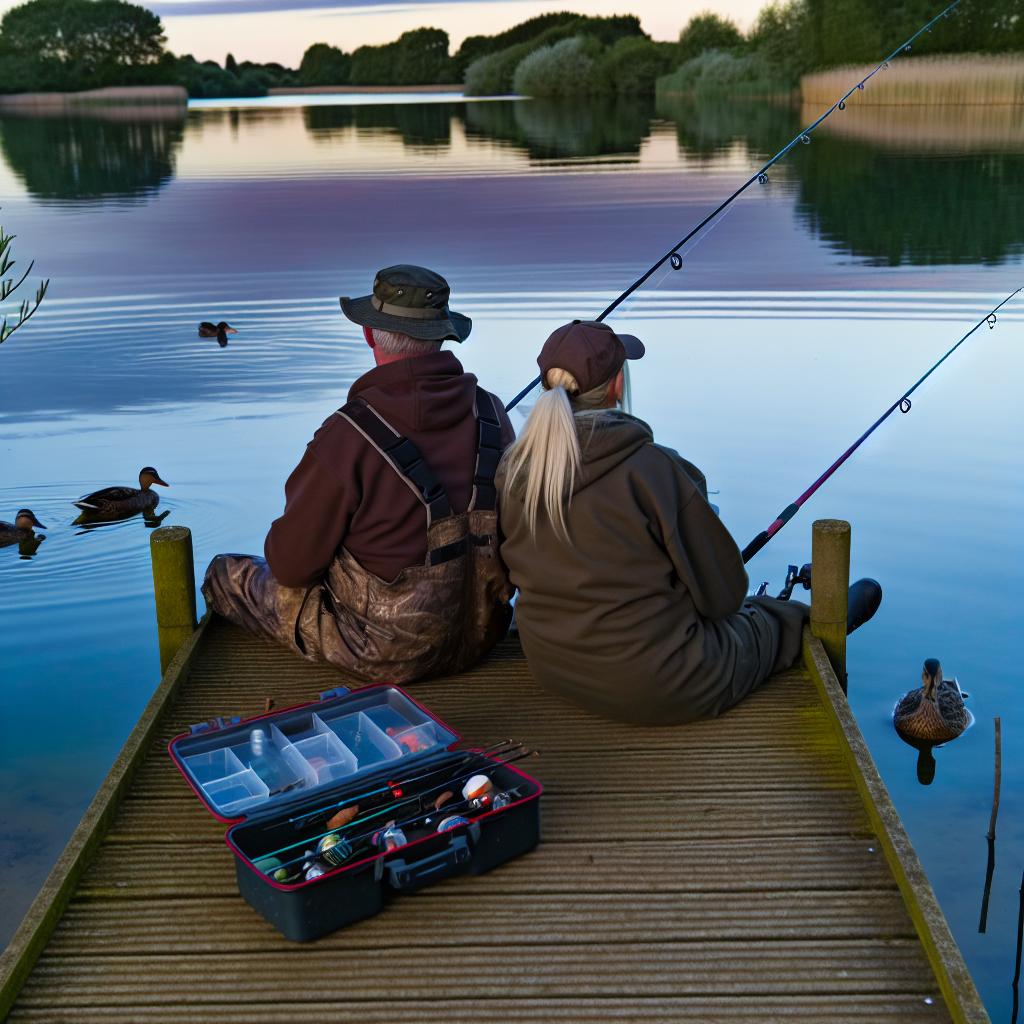Introduction
Fishing in UK freshwater lakes is a popular pastime enjoyed by locals and tourists alike. The UK’s diverse aquatic ecosystems offer abundant opportunities for anglers to connect with nature while catching various fish species. This article provides an overview of freshwater fishing in the UK, tips for beginners, and important regulations to consider.
Popular Freshwater Lakes in the UK
The UK is home to numerous freshwater lakes that support a wide array of fish species. Some well-known lakes include:
Lake Windermere: Situated in the Lake District National Park, Lake Windermere is one of the largest natural lakes in England. Renowned for its beautiful scenery, it offers opportunities to catch a variety of fish including pike, perch, and trout. The lake’s extensive shoreline and deep waters make it an attractive destination for both amateur and experienced anglers.
Loch Lomond: As Scotland’s largest freshwater lake, Loch Lomond is famous for its stunning landscapes and rich biodiversity. Here, anglers can expect to find salmon, trout, and pike among other species. The surrounding Trossachs region is also a haven for outdoor enthusiasts who enjoy hiking and wildlife watching, making it an ideal fishing destination for nature lovers.
Lough Neagh: Located in Northern Ireland, Lough Neagh is the UK’s largest lake by surface area. It offers excellent opportunities for catching eels, bream, and perch. The lake is steeped in history and mythology, adding a unique cultural dimension to the fishing experience. Beyond fishing, visitors can explore the surrounding countryside and communities rich in heritage and charm.
Types of Fish Found in UK Freshwater Lakes
The diverse ecosystems of UK lakes support numerous fish species, including:
– Trout: Brown trout and rainbow trout are commonly sought after in UK waters, offering anglers both challenge and enjoyment. These fish are well-adapted to cold, well-oxygenated lakes and streams, and their presence is a sign of healthy aquatic environments.
– Pike: Known for their aggressive nature, pike is a popular target for sport fishing. These predators are known to grow large, providing an exciting challenge for anglers who are equipped with the right gear and techniques.
– Perch: Recognized by their distinctive stripes and spiky fins, perch are widely distributed across UK lakes. Their abundance makes them a frequent catch for anglers of all skill levels.
Fishing Techniques
Various techniques are utilized by anglers when fishing in UK freshwater lakes. Some common methods include:
Fly Fishing: Particularly popular for catching trout, fly fishing involves using artificial flies to attract fish. This technique requires skill and practice, as it involves casting the fly in a way that mimics the movement of insects on the water’s surface. Fly fishing is not only about catching fish; it is an art form that connects anglers to the natural rhythms of the aquatic world.
Spinning: This technique employs a rod, reel, and a variety of lures and is effective for catching predatory fish like pike. Spinning is highly versatile and allows anglers to cover large areas of water quickly, making it ideal for exploring new fishing spots.
Ledgering: Also known as bottom fishing, ledgering is utilized to target species that feed near the lakebed, such as bream and carp. This technique involves using weighted lines to keep bait positioned on the bottom, where these species are known to forage.
Regulations and Considerations
Anglers in the UK must adhere to several regulations to ensure sustainable fishing practices:
– Obtain a valid fishing license from the Environment Agency before fishing. A fishing license is a legal requirement for anyone over the age of 16, and it helps to regulate and support conservation efforts across the country’s freshwater systems.
– Familiarize yourself with each lake’s specific bylaws, which may restrict the types of bait and fishing methods. Local bylaws are put in place to protect fish stocks and ensure that fishing activities do not harm the wider ecosystem. Understanding these regulations is crucial for responsible angling.
– Respect seasonal fishing restrictions, as some species have closed seasons to protect their populations during spawning periods. These restrictions are critical for allowing fish populations to replenish, ensuring that future generations can also enjoy the UK’s rich angling heritage.
By understanding these regulations and following proper techniques, anglers can enjoy a rewarding fishing experience while contributing to the conservation of the UK’s aquatic ecosystems. Fishing is not only a means to engage with nature but also a way to immerse oneself in the tranquility and beauty of some of the UK’s most cherished natural landscapes. Fishing trips often serve as opportunities for relaxation, reflection, and recreation, all while fostering a deeper appreciation for the environment.
The tradition of fishing in the UK is deeply ingrained in the country’s culture, offering not just sport but also a chance to slow down and appreciate the natural world. Whether casting a line into the peaceful waters of a secluded lake or competing in a bustling angling competition, the experience of fishing is enriched by the stunning backdrop of the British countryside and the ever-present sense of connection to the pastures’ quiet rhythms and cycles.
Overall, the lakes of the UK provide a unique and inviting setting for angling enthusiasts. Whether one is seeking the thrill of the catch or simply the serenity of being on the water, UK freshwater fishing offers something for everyone. Anglers are encouraged to engage with local communities, learn more about conservation efforts, and play a role in preserving these valuable ecosystems for future generations. Through mindful and responsible practices, fishing in the UK can continue to be a celebrated tradition that brings joy and fulfillment to many.
